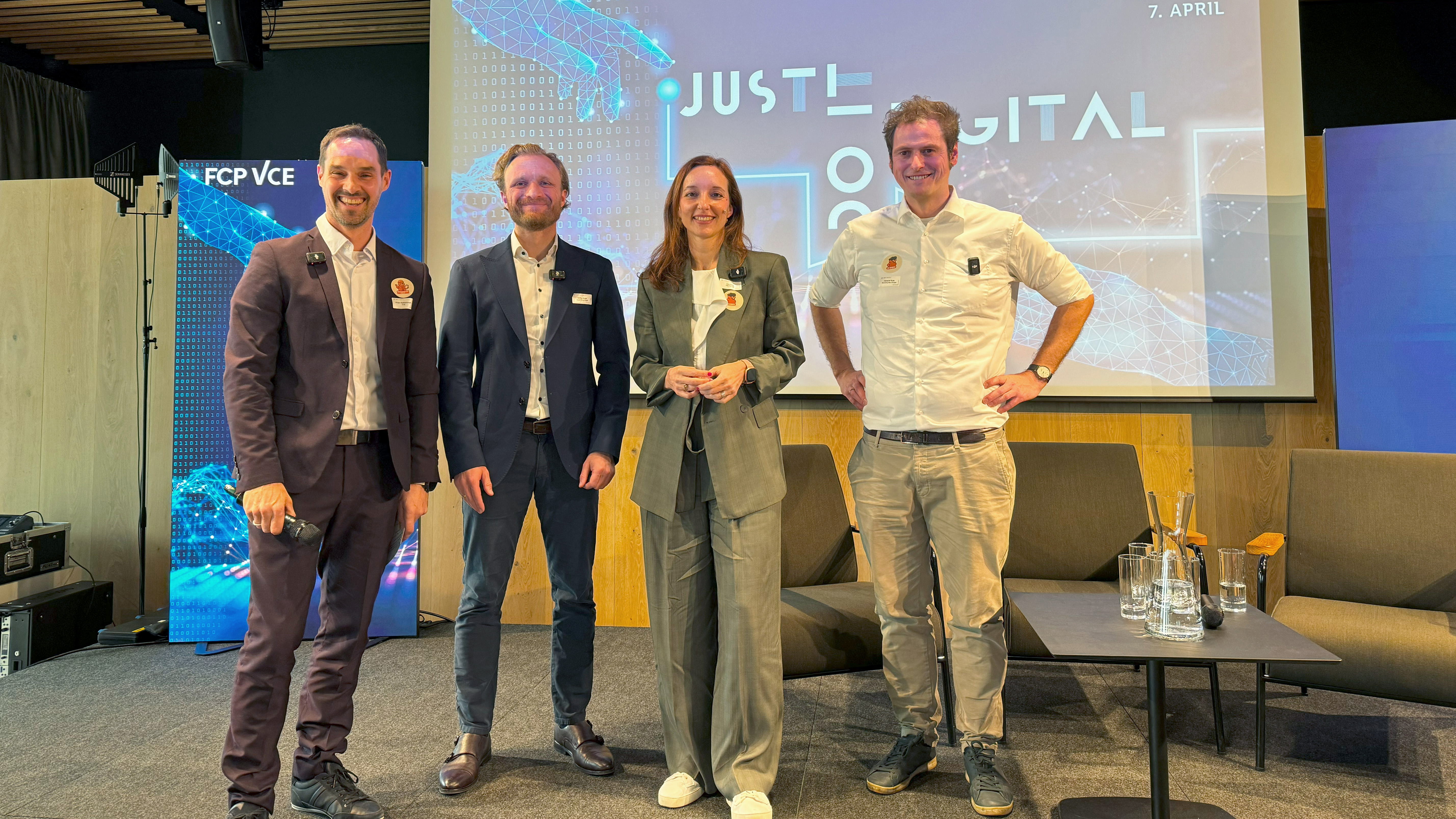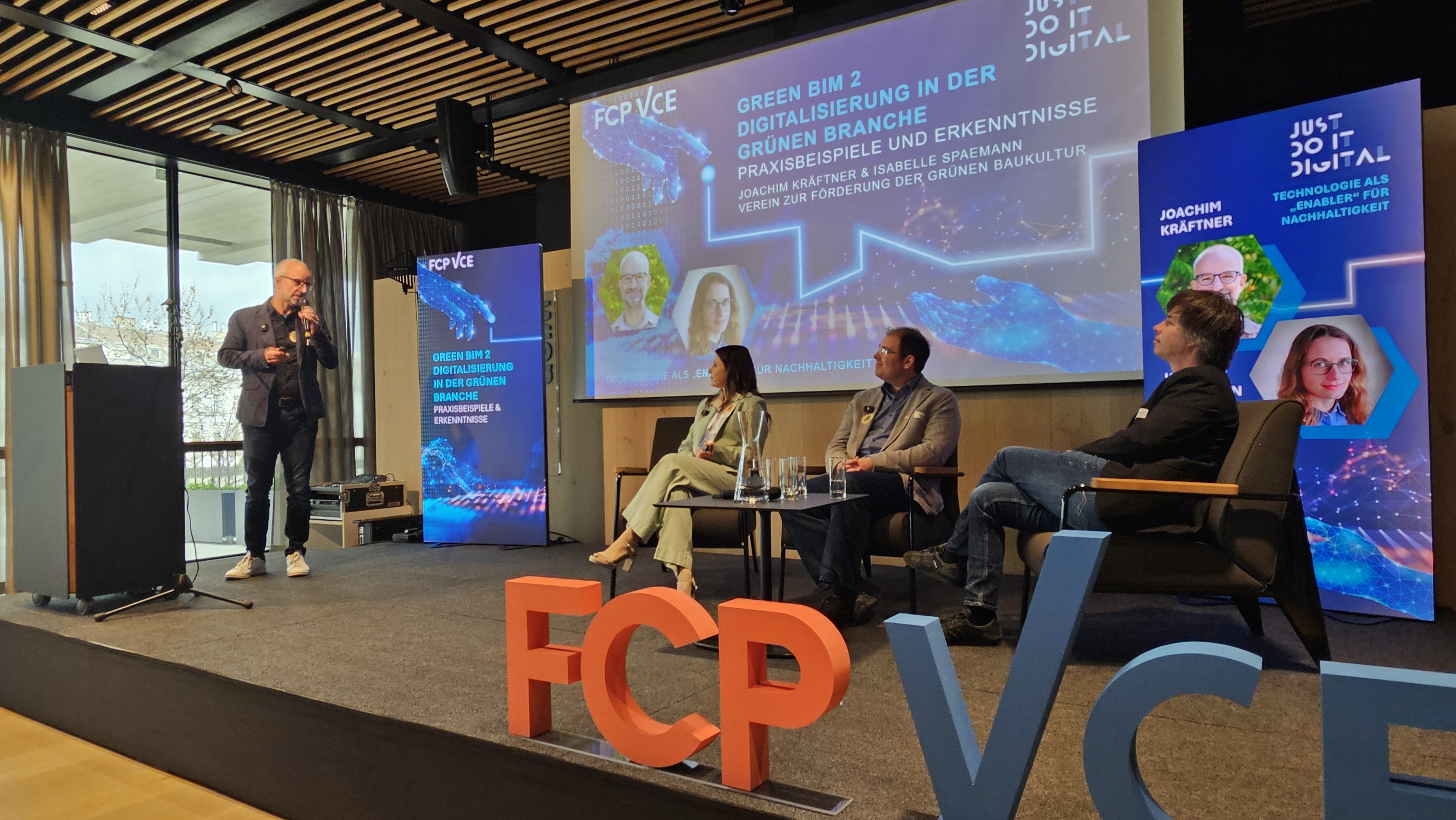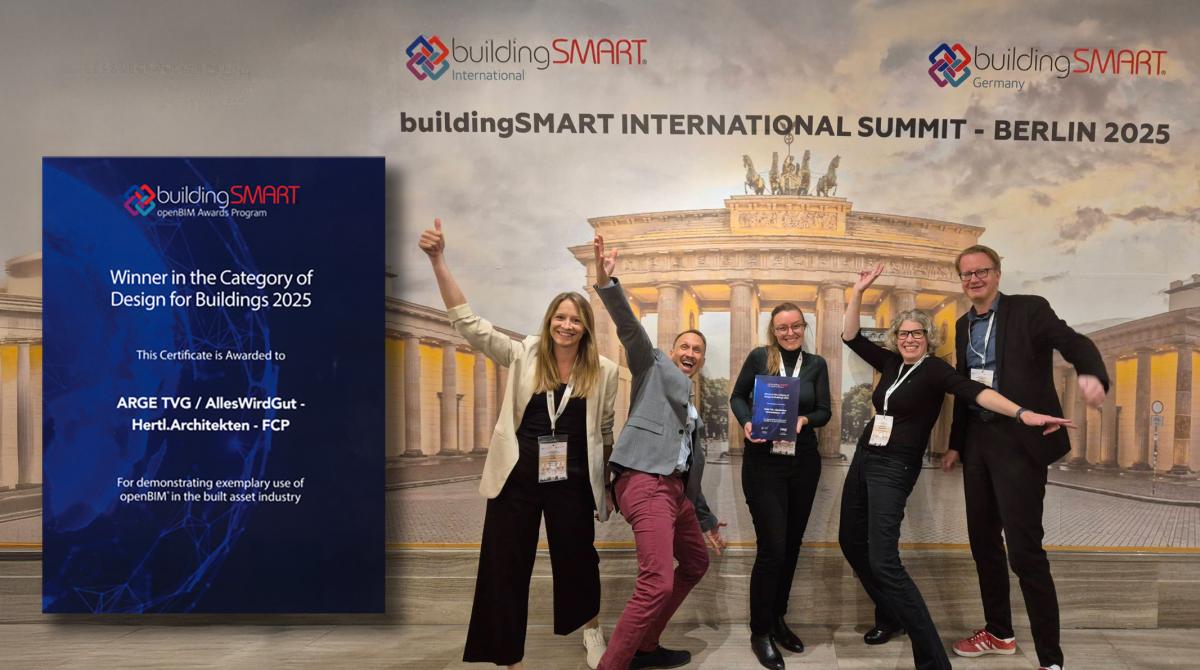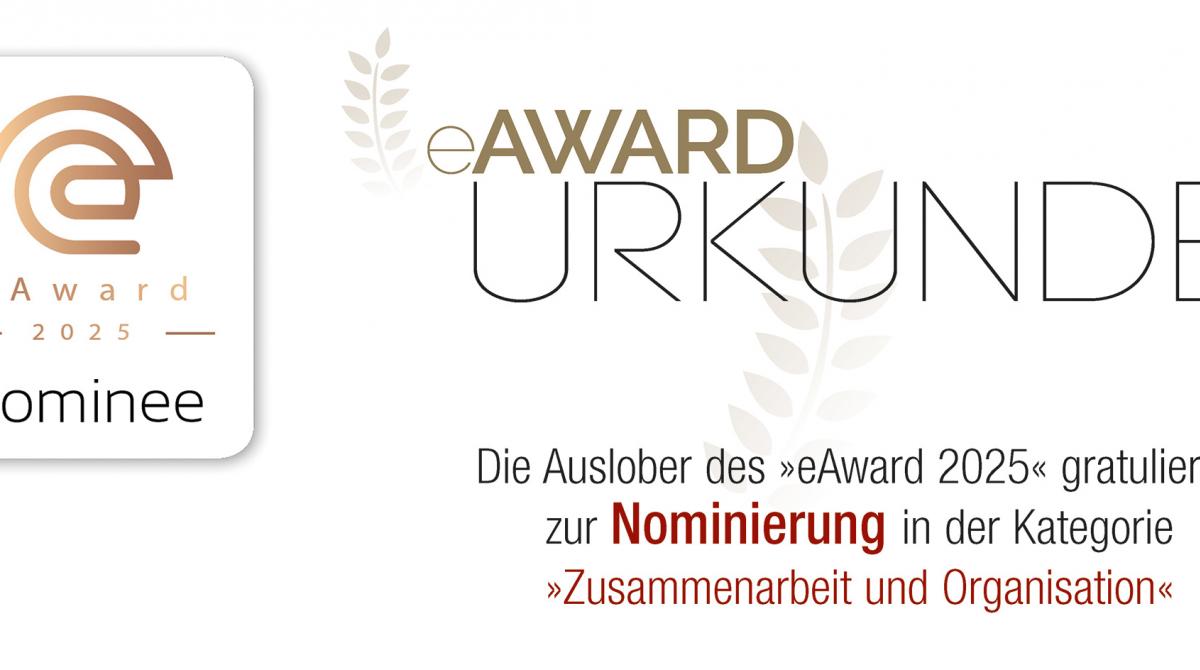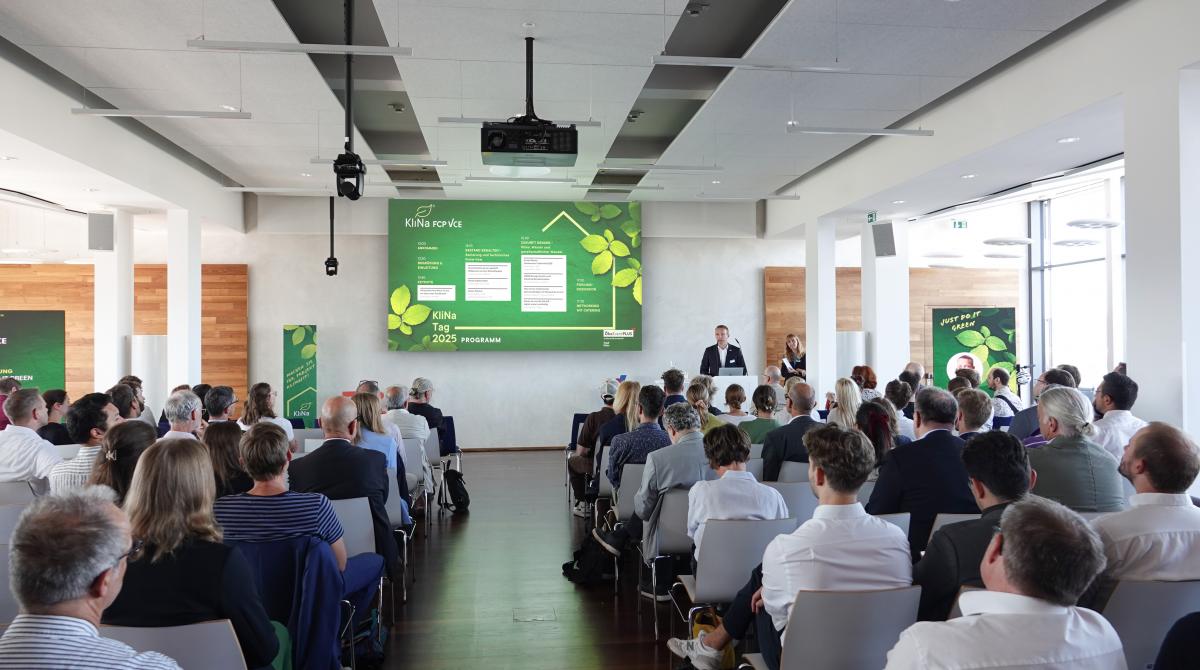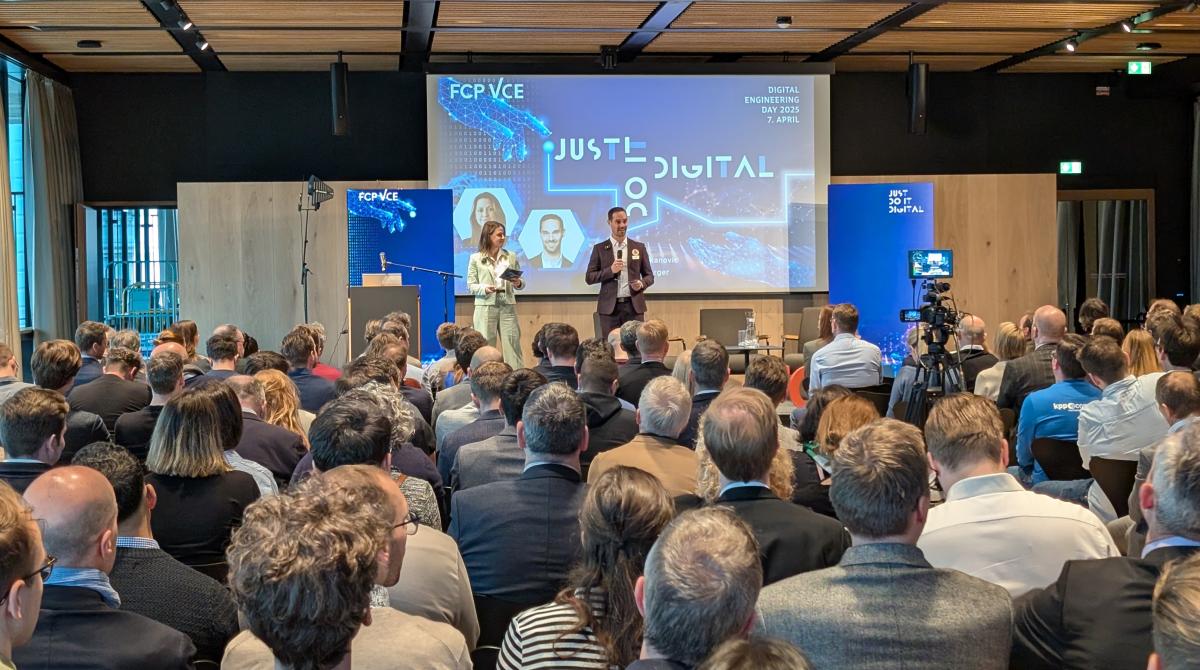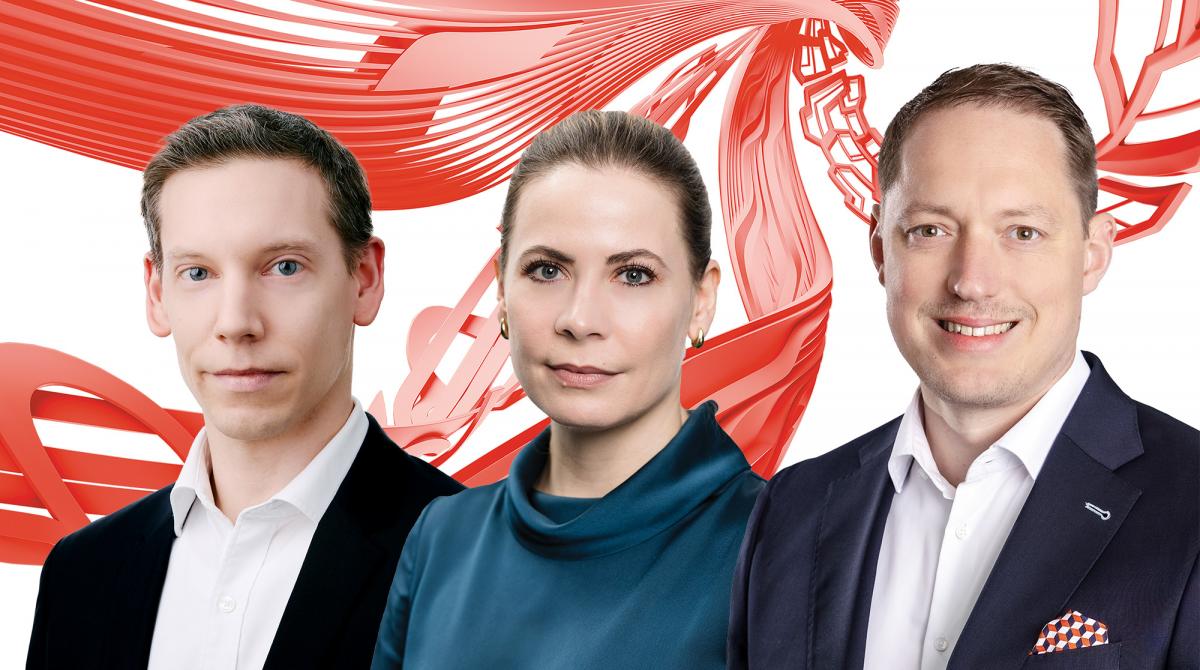Digital Engineering Day 2025: How Digital Intelligence Newly Shapes Buildings
Experts agree: AGI remains a dream of the future – AI, however, is already a reality as co-intelligence in civil engineering
Vienna, 10 April 2025_ The future of construction is digital. However, how does it specifically look like? Approx. 260 experts, masterminds and practitioners discussed the next steps towards a digital building culture at the sold-out Digital Engineering Day 2025 on 7 April, organized by FCP.VCE in Wien Museum.
Host and FCP managing director Wolf-Dietrich Denk opened the afternoon with introductory words and not only focused on technological innovations but above all on their specific impact on processes, sustainability and working life:
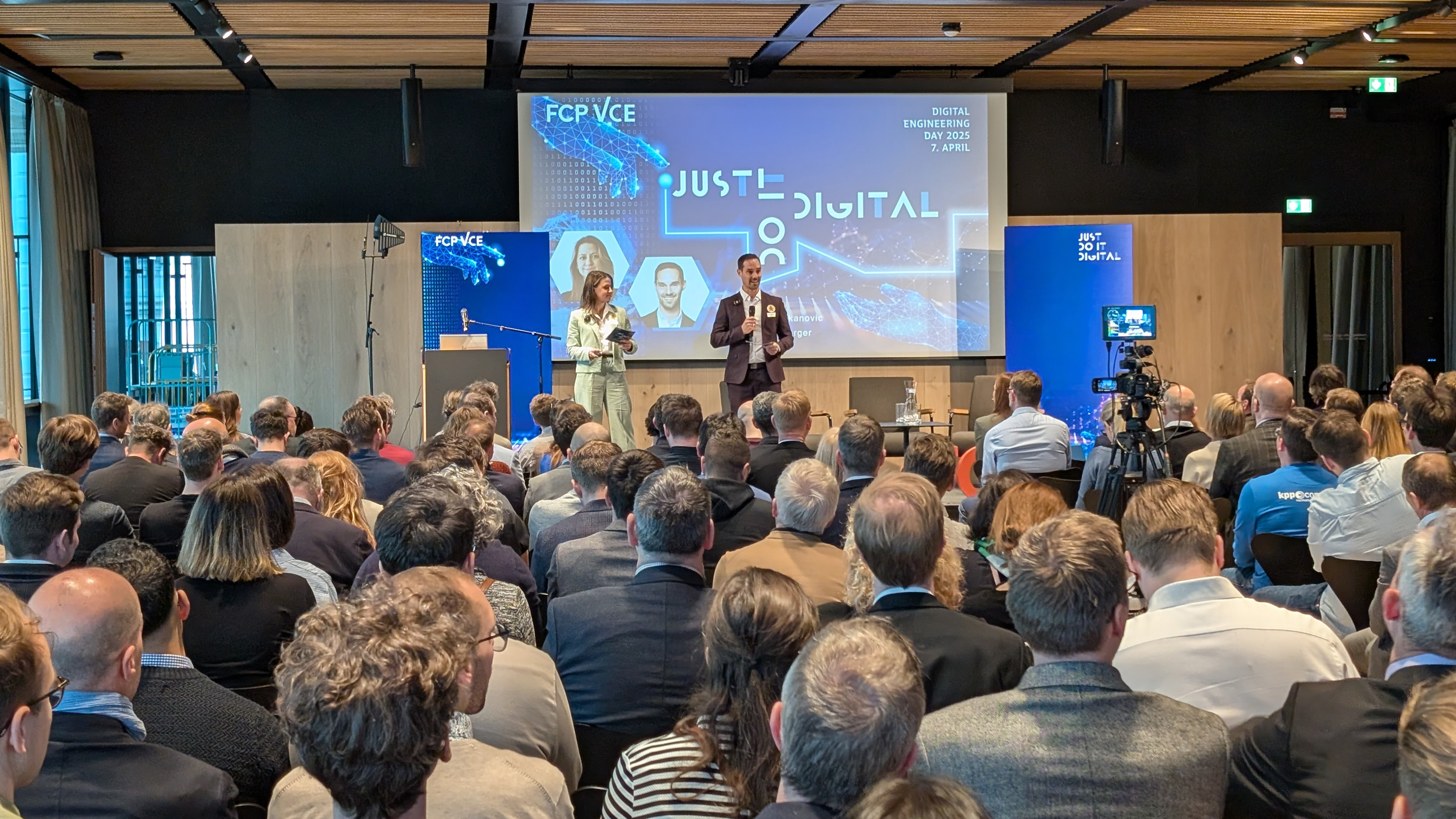

„ Successful digitization does not start with technology but with the people. We would like to create tools bringing about real added values – for our projects, our partners and for every single person at FCP.VCE. AI and digital tools shall not replace but support, enable and release our creativity.”. “
Wolf-Dietrich Denk, FCP.VCE managing director
From vision to responsibility: AI as co-intelligence in civil engineering
Ana Simic, managing director of the AI consulting company Propeller started with an inspiring keynote address. She drew a multifaceted picture of the potential of artificial intelligence: as tool for an increase in efficiency, as sparring partner in early planning & development phases and as strategic driver for innovation.
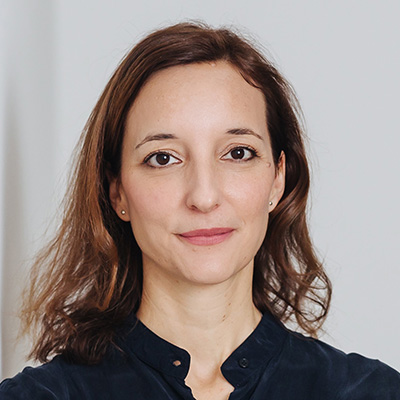
„ AI is not a finished product but a system further developing daily. It does not replace us – it complements us. “
Ana Simic . Propeller
Simic emphasized the necessity of consciously dealing with ethical questions, clear rules and standards and a well-aimed use of AI, which extends human intelligence instead of replacing it. She appealed to the companies to consider their employees “internal R&D departments” – as source for ideas how AI can create real added value in practice.
Steffen Robbi, managing director of Digital findet Stadt, focused on the technical basis: According to him AI needs parametric systems, BIM as well as big and high-quality amounts of data. At the same time, it reaches its limits where emotional intelligence and creative approaches are required. The human being stays indispensable – but AI can have a great effect as an efficient assistance if companies are willing to invest and create appropriate structures.
Sustainability meets digitization: Impulses from practice
In the second block of topics the priority was practical implementation: digitization as enabler for sustainable construction. Based on the example of the material building pass – presented at the education campus of the city of Vienna – it was shown how data-based systems can promote conservation of resources and the circular economy.
Joachim Kräftner from the Verein zur Förderung der Grünen Baukultur (association for the promotion of the green building culture) presented the project Green BIM 2. The objective is to digitally represent the whole life cycle of green structures – a visionary step towards ecologically smart building and city planning.
Ground-breaking flagships: When digital planning gets real
Subsequently industry representatives presented specific best-practice examples in the third block of topics: FCP managing director Wolf-Dietrich Denk presented the latest developments of the Digital Project Universe (DPU), which shall raise digital planning and steering processes to a new level.
Particular interest was attached to the large-scale projects Gäubahn and Neues Werk Cottbus of the German Railways – both of them flagship projects for the application of digital methods. They show measurable benefits relating to quality, time management and efficiency of resources.
The tenor of all lecturers was like a red thread: Just do it. Be courageous. Just try.
A focus on human beings: Outlook on a new building culture
The conclusion was done by Lisa Lenz of BIM-GLW with a new outlook on the digital building site of tomorrow. She showed how AI can relieve site managers already today – up to 30–50 % fewer administrative tasks mean more room for creativity, communication and quality.
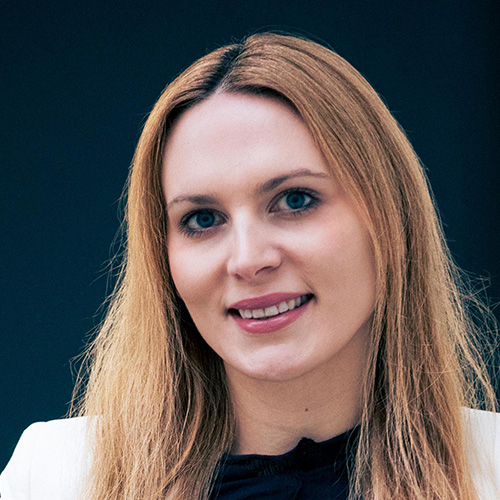
„ AI does not make us needless – it makes us more focussed. Free room for essential matters is created in particular for administrative, data-driven activities: good planning, creative solutions and real cooperation “
Lisa Lenz . BIM-GLW
FCP.VCE: Driver of digital change
FCP.VCE impressively showed on the Digital Engineering Day 2025 that companies do not only accompany the digital change, but they actively shape it – by interdisciplinary thinking, practical applications and a clear focus on the future of construction.
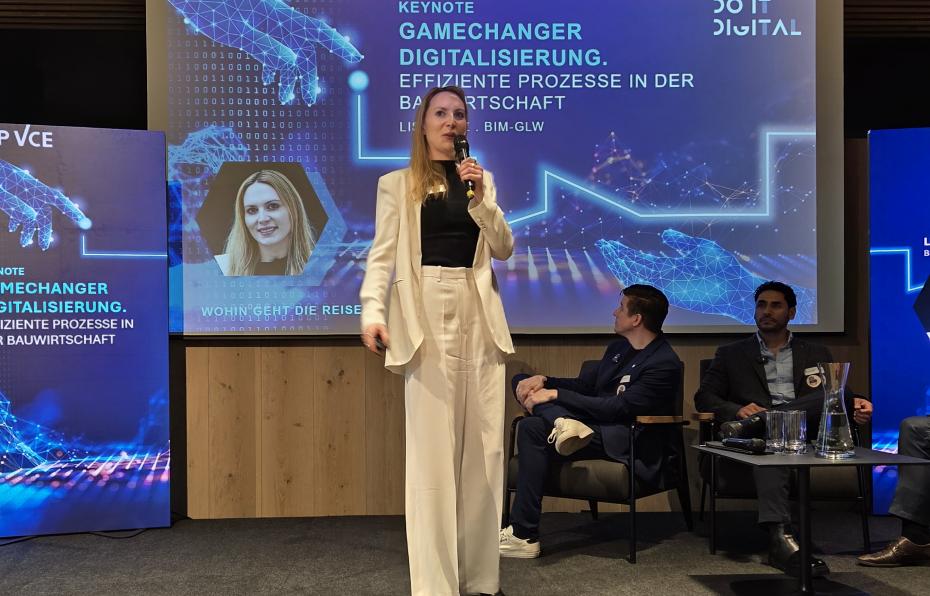
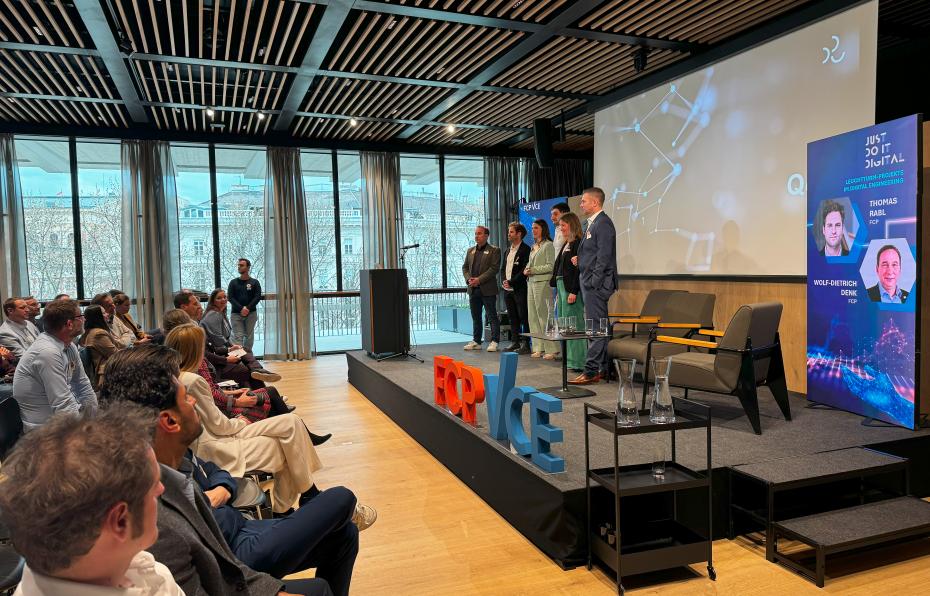
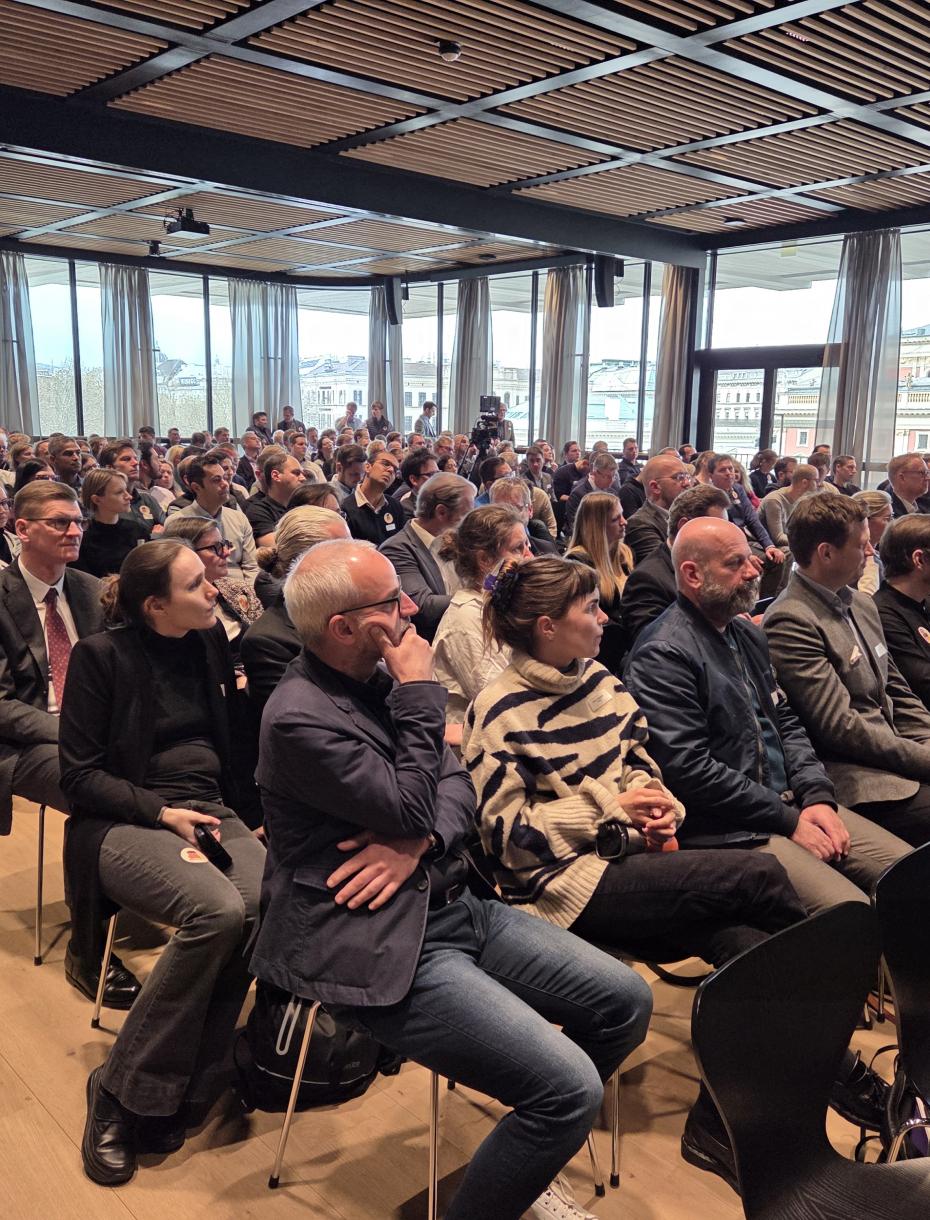
Image Reference:
Images may be used for press purposes free of charge with reference to the copyright (©FCP).
Contact for Further Information:
Mag. Cornelia Riegler
FCP Fritsch, Chiari & Partner ZT GmbH
Press
+43 1 90 292 . 1286
criegler@fcp.at
